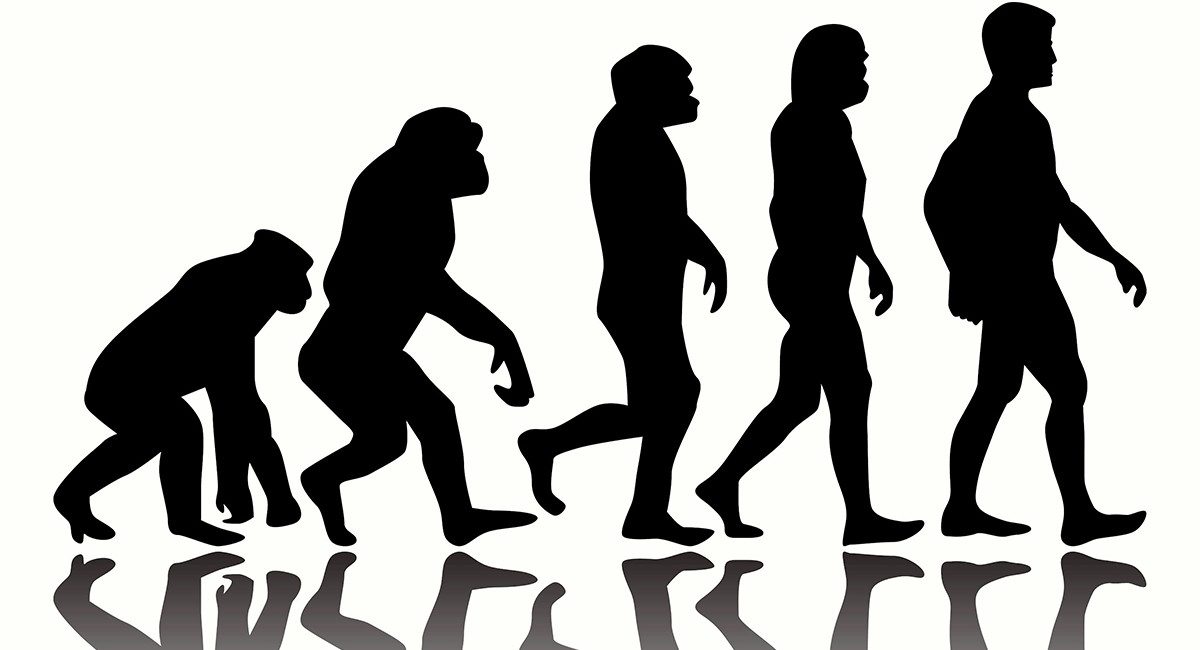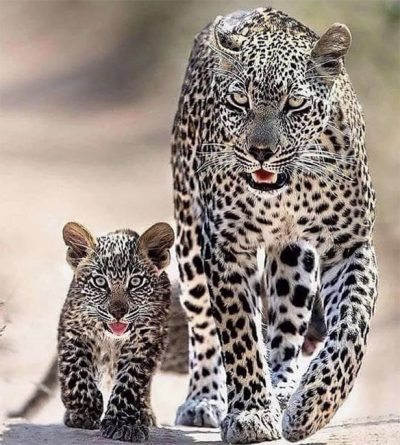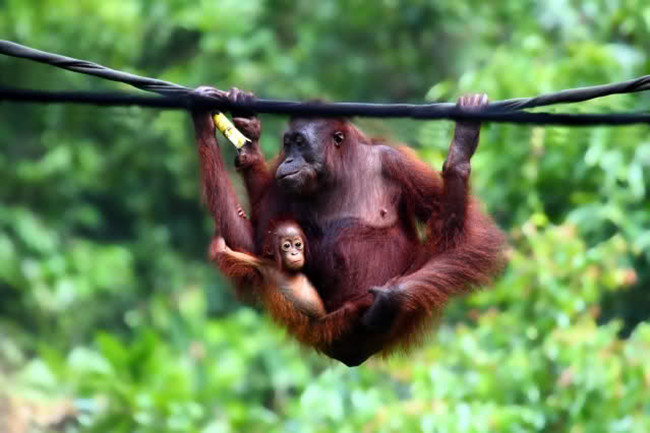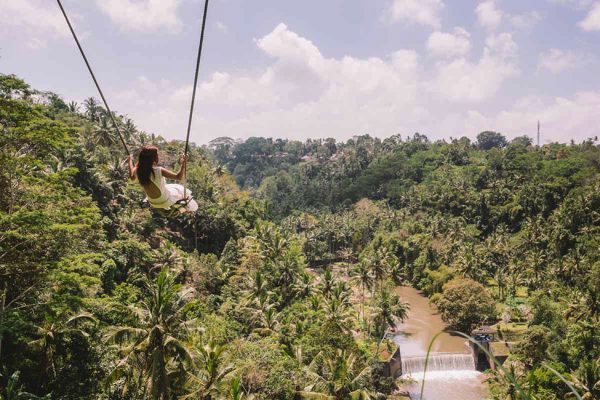PHILOSOPHY
Our approach is Back to basics. Our motto is Enjoy your primitive side.
We want to return to our origins to rediscover capabilities we have lost over time and to enjoy contemporary life in a new way.
In the jungle, you are continuously put to the test and learn to make better use of your abilities. Naturally and without preconditions, everything responds to the perfect balance of the jungle.
FROM MONKEY TO MAN
Round trip
The family tree of the human species is very complex. Genetic sequences analysis show that human DNA is almost 99% equal to that of a bonobo and a chimpanzee. The fossil finds testify that in our line of evolution there are successive species of hominids that at the origin were separated from the species of other anthropomorphic primates.
Our DNA-forming genes are actually subjected to random mutations that from time to time modify important traits such as physical or behavioral characteristics.
Adaptive mutations have brought in humankind some changes due to the conditions and life choices. Our evolution from the monkey dates back to millions of years ago.

What we know as Homo Sapiens could fabricate objects with intelligence and competence, he could control the fire and others manual abilities led to a clear growth for our brains and reasoning skill.
Man added the formation of an articulated language,he began to enjoy the beauty of art and music, he learnt to domesticate animals and to produce in a systemic way the fruits of the earth through agriculture.
The man on the other hand, has also become a “murderous monkey” – as reported by the anthropologist Raymond Dart – Because unlike the monkeys we learnt to “forcibly “capture the living prey, beat them to death and rip off the bodies, extinguishing our hunger.
The man has developed a great ability to adapt to change and has a great propensity to colonize new territories by cooperating with other men of their own species.
Generating at times situations of pure altruism sometimes of conflict.
We can therefore say that as demonstrated in the scientific field there is no real “missing link” between man and monkey that would have evolved proceeding from the same root.
Jungle is born for this reason: allow the man to reconnect with that natural part that is in him, recognizing the good of the evolution and at the same time recovering how much of primitive it is inscribed in its own DNA.
Jungle wants to be a free space where to go back to being yourself, intrigued by Tarzan, the super hero remained a man, who has been able to immerse himself in the wilderness.
The jungle has it bred and taught him to be strong and loyal, brave and pure and allowed him to undress of their patterns not by interpreting a part but by discovering how to remain human.
JUNGLE: PRIMITIVE PROGRESSION
Can we progress returning to the primitive state?
Jungle wants to allow man to reacquire that freedom that belonged to him retained in the depths of its biological structure.
A man who can be free and curious as was required in the jungle to a primate, which needs nothing but to get the food and to survive. Jungle does not want to be a regression, but a primitive progression.
Man must not cancel his own evolution and the results he has hardly achieved: he can progress, but he must learn to do it without losing his roots.
Contemporary man needs to go back to looking at the world from another point of view:from above.

He needs to stay hanged, so he can understand the return to those “primordial movements”, those movements that bring man back to nature and to the animal world where he belongs.
In the primordial evolution from the four legs to the upright position, our body was not structured to pass eight hours a day sitting on a desk or on a sofa flicking newspaper pages on a tablet or mobile phone.
Oliver Berton, associate professor of Neuroscience at the University of Pennsylvania, carried out an analysis where recent studies on primates show that they were no longer interested in their environment and their fellows.
The study assumes that depression is diagnosed in humans on the basis of a series of symptoms such as: guilt, thought of death and the loss of pleasure.
It has been assessed that this problem develops in captive animals, grown in less stimulating conditions compared to their natural habitat.
Further research by some UK physicians from Aberdeen University studied the ancient origins of back pain.
It was highlighted that in many people the vertebral column has not developed in a complete way, and has remained similar a chimpanzee one.
Mark Collard, one of the researchers, said the column changed over time, but had to deal with the need for a body resting only on two limbs and constantly in contact with the soil.
People which the spine has not evolved “are less able to bear the pressure of walking on two feet” that’ s why they suffer from back pain.
Jungle assume that if the monkeys are so similar to man and they suffers from the same illnesses, from the other hand they have a great resistance to back pain and depression.
So if the progress is unstoppable, man needs to progress also by returning to being authentically man.
There’s never been a time where body care plays a fundamental role as nowadays but these bodies need to reactivate features that would make them healthier.
So here it comes Jungle, a place where you can train outside the box, completely in a natural way,no limits, only instinct, strength, dynamism, determination and awareness of your movements.
Simple and often underestimated movements that can help us to reactivate the potential that we lost, to rediscover interest in pleasant activities and fight the depression given by schemes and structures.
Jungle is also this: trying to progress in a life where sometimes it’s necessary to take steps back to see the real progression.
LIVE HANGING
Boris Cyrulnik’s Resilience Theory assumes that every person shines so bright and he’ s unique: “There aren’t two identical fires, there are big and small fires and fires of every color.
There are people of a peaceful fire, who does not even feel the wind, and people of one crazy fire, which fills the air with sparks. Some fires, silly fires, neither illuminate nor they burn, but others flare up with such force that you can not look at them without being affected, and who try to approach them lights himself up”.
The term resilience is taken from the physical vocabulary and represents the capacity of a material to endure sudden shocks without breaking. We can translate it into the human sciences like the human capacity to face the adversities of life, to overcome them, or even being transformed by these.
Resilience is the possibility to react in a positive way to the difficulties , the desire to build : the inner strength of human beings. It is not just surviving , but it is having the ability to use the experience raised from difficult situations in order to build a better future.

The characteristics of the resilience are seven:
• INSIGHT: the ability to examine oneself, ask yourself the difficult questions and answer with sincerity
• INDEPENDENCE: the ability to stay at a certain distance, physical and emotional, of the problems, without isolating yourself
• INTERACTION: the ability to establish intimate and satisfying relationships with other people.
• INITIATIVE: the ability to face problems, understand them and be\ being able to control them.
• CREATIVITY: the ability to create order, beauty and objectives starting from chaos and from disorder.
• ALLEGRIA: disposition of the spirit to happiness, which allows us to move away from the focal point of the tension, relativizing and positivizing the events that strike us.
• MORAL: refers to all the values accepted by a society at a given time and which every person internalizes in the course of his life.
Resilience is a factor that can be enhanced by experience.
It doesn’t take his “force” only by the natural conditions of individuals, but also needs external help and an environment that facilitates and supports a positive and rich personal development.
ENJOY
from WORKOUT to PLAYOUT
In 1780 a man named Johann Ludwig Hellwig was an officer educator at the military academy in northern Prussia, and could not sleep for several nights because he was tormented from the scarce involvement of young students in military disciplines.
Despite his passion, he saw his boys yawning on the tables of the academy, during the lessons, they preferred to play chess and drink beers after those ones.
So one day, he placed four chess boards on the table and began to develop the rules of a new game. A board game that would have simulated a war situation, with lots of different types of land and with miniatures representing the three branches of the army of the time (artillery, infantry, cavalry). He called it “Kriegsspiel“.
In a short time this game spread among the Prussian officers and became a pillar of the army training, continuing to be used for over a century, until 1870 the period of the Franco-Prussian war.
The war marked such an overwhelming victory by the Prussian army, that all European powers began to take an interest in Kriegsspiel for training their troops.
Johann Ludwig Hellwig had a such a simple but so brilliant idea at the time ,using the game in order to teach some notions to adults: learn while you have fun.
Jungle allows you to train yourself to win your battle.
But how does it works the learning through the game?
The basic principle is that the information and feelings lived in first person through the gaming experiences remain strongly imprinted in our memory, while the playful aspects increase the involvement allowing to lower our defenses and therefore favor the spontaneity of actions.
Furthermore, acting in a protected environment increases ours predisposition to experimentation and novelty.
The possibility that Jungle offers to repeat an exercise countless times, leads to the total mastering of the new dynamics explored, increasing not only the mastery of the instrument, but giving us greater confidence in dealing with new and unexpected situations in real life.
“Work consists of anything the body is forced to do… Playing consists of anything that the body is not obliged to do, but likes to do. ” (Mark Twain)
YOUR

Jungle promotes a rebirth for the man of our days, tired of living in an era where the analysis of reality is so critical.
Several times in the history we have sought a return to the classic, a relocation of man in a more human dimension.
Jungle is the philosophy of human beings that struggle to remain human.
Men who live in the concreteness of their work and commit themselves to building up one’s own society.
Referring to Pico Della Mirandola, that one of Jungle, is the vision of a man that rediscovers its chameleonic potentials.
A man that he’s like no other animal because he has a charateristic that others do not have i.e the control of their own freedom.
His return to nature to his wild and animal status allows him to live instinctively and spontaneously.
The person and his relationships at the center of the system, not just his mind, not just his muscles, but the human being, the individual as a whole.This is Jungle.
PRIMITIVE ATTITUDE
We are used to considering the body as something separate from us: an organism whose “feel good” is increasingly delegated to doctors and specialists of various nature. our well-being does not have to need to go through medicalization.
As the neuroscience researcher Enzo Soresi states “take responsibility for our own health means firstly adopting a style of life that raises the level of resistance to diseases. Listening carefully to our course, moving closer to its needs and not neglecting its signals”.
As demonstrated by the latest discoveries of the Psycho-neuro-endocrine-immunology, ours organism is a unity, an undivided set of mind and body whose harmonious growth depends on the understanding of the link between mind and body.
And the brain is the place where all these factors meet: our beliefs in this perspective play a fundamental role and yes they affect our ability to work on our body.
The latest scientific research confirms that through our physical activity we help to shape our brain, to create synaptic connections, to open new ones horizons of possibilities for our development.